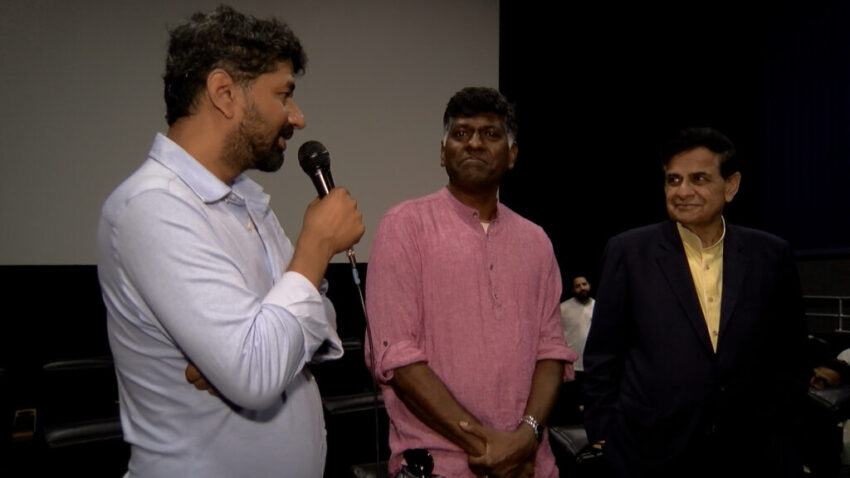
At a special event held in New Jersey, the 60-minutes documentary film “Caste Rush” was screened. Film-makers have described it as “a truth-seeking journey across India to verify/debunk the allegation of caste discrimination in our ancient temples.”
The producer of the documentary, Indic Dialogue, along with Director Nikhil Singh Rajputt, were present at the screening to answer questions and provide details about the inspiration for the documentary.
Film makers noted that they visited “all the 4 corners of India, documenting the current practices of ancient Indian temples vis a vis caste. Are Dalits not allowed in temples? Can non brahmins ever be priests?”

Among the special invitees was Padma Shri recipient Dr. Sudhir Parikh, chairman of Parikh Worldwide Media and ITV Gold, who was introduced as devoted to the Hindu causes. Dr. Parikh was introduced by Keshav of Indic Dialogue.

Dr. Parikh, in his speech noted, “We all are proud of being a Hindu. It’s a most ancient religion and, as you see in this movie, it’s a very inclusive religion. We have to stay together, walk together and make sure everyone in a western world can understand what’s the beauty of Hindu culture, Hindu religion and inclusiveness of the Hindu sanatan dharma.”
“That’s why two months ago when Singris Shankara gave me, as well as Maharani of Trivandrum, and Deepak Chopra, a world Hindu leader award. They told us it is your responsibility to dispel so many wrong narratives about Sanatan Dharma, which is most acceptable worldwide,” Parikh added.
During a Question & Answer session with film-maker Rajputt, the director emphasized that the aim of the film was not to just say there was no discrimination, but to visit actual temples on the day they were the busiest, to capture and document it like it is, to set the record straight.
Rajputt added, “The film is made for Indian-Americans to fight against the propaganda that happens in this country. We had three screenings for people in Bharat and almost everybody was like, “Yeah, we know.”
“Something that is so commonly known in Bharat is still a propaganda item here in this country,” he said. He went on to say that making the film meant dealing with the idea of caste, which “is so big that you will need probably four or five hours of film to capture it in a mandir, to capture it in educational institution, to capture it in workplace, to capture it in an individual.”
 The idea was to defend only the temples, not the government of India, or the education system, or other elements. “For everybody to agree (on just that restriction) took us four five months,” Rajputt said. It took two years to make the 60-minute documentary, and he described the obstacles in the way.
The idea was to defend only the temples, not the government of India, or the education system, or other elements. “For everybody to agree (on just that restriction) took us four five months,” Rajputt said. It took two years to make the 60-minute documentary, and he described the obstacles in the way.
The documentary seeks to explain that Hinduism is not equal to the caste system, or untouchability, for a Western audience which has been led to believe it is.
“So, we want to bring it to school districts and to universities and colleges. But first this is what we are doing. I have personally been to at least 14 – 15 cities now and will continue to do so,” Rajputt said.
Dr. Parikh called Caste Rush, a “great film,” and encouraged Rajputt to continue his research and to expect his support in future endeavors.
Indic Dialogue representative Keshav, thanked all those who attended, and explained how the one-hour documentary shows “that there is no discrimination as far as people who are coming to the temple as compared to what you read or hear in the mainstream American press.”
Dr. Parikh said he was proud of the efforts of Rajputt and his team, and Indic Dialogues, for making the film, and that they could depend on Parikh Worldwide Media and ITV Gold, and him personally, for any help needed.



